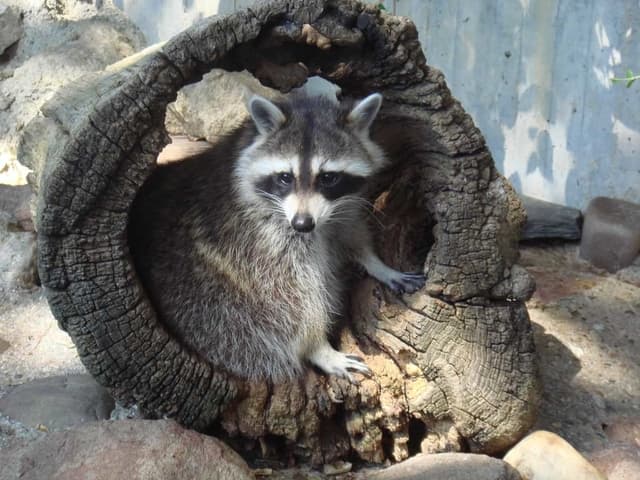While these animals are interesting with their unique intelligence, they may not always be welcome guests in residential areas. Many people have wondered, are there any benefits of having raccoons around your property? The answer is both yes and no. There are certainly some disadvantages but raccoons can also offer benefits to your garden. The key to taking advantage of these benefits is being familiar with how to handle their presence on personal property.
Known Benefits
It’s not recommended to allow a huge number of raccoons to live on personal property, but there are some benefits to having one or two around on the occasional basis. Thanks to their preference for a variety of foods, raccoons help homeowners keep their yard free from pests. One example is that raccoons will eat wasp lavae and destroy the dangerous nest. They also will catch and eat small rodents, which can protect the house or garden from potential problems.
Racoons can also help to keep a yard clean. Because they are omnivores, they’ll eat a huge variety of plant and animal matter. From grubs to plants and anything in-between, raccoons can get rid of any dead insects or clippings in the yard. They play a huge role in insect and rodent control, helping to keep undesirable pests from the yard and house. This is why it may be somewhat beneficial to have the occasional raccoon visitor.
Disadvantages
Although the benefits mentioned above should be ignored, having a group of raccoons in the area also poses a health hazard and other disadvantages. Raccoons are natural scavengers and will often get into garbage cans, raid pet food, and destroy the garden to gain access to their favorite foods. In some cases, they may even try to get into the house and can cause significant damage along the way.
The health disadvantage of raccoons is due to their ability to carry diseases. A raccoon may carry rabies, roundworms, fleas, and parvovirus which can be dangerous to humans and pets. Even if staying away from raccoons, these creatures may pose a danger to the family cat or dog. For these reasons, raccoon control experts recommend maintaining an environment which does not support permanent homes for raccoons. Additionally, having fenced-in areas such as a garden can exclude raccoons from causing any problems.
While raccoons are not entirely welcome visitors, they do provide some benefits. Most homeowners may enjoy having them in the area where they can keep down the pest population.
Raccoon Can Destroy Your Yard with Their Feces
The presence of raccoons in your yard may spell doom for your property and may even put your family and pets at risk of dangerous diseases like rabies. Although raccoons can bring a lot of problems to your home, including raiding your trash cans and making holes in your lawn, the issue of raccoon latrines in your yard is particularly serious.
Raccoon feces don’t just make your environment smelly and uncomfortable but also pose a great risk of serious infections, as they may contain highly contagious organisms.
Do you need to remove raccoon poop in your yard? Get a free quote now: 647-557-7932
WHY YOU NEED AN EXPERT TO DECONTAMINATE YOUR YARD
The infectious agents in raccoon feces can withstand tough conditions for a long time, so even when the feces are dried, those organisms are still highly infectious. You need a wildlife removal expert to clean and disinfect the areas contaminated by raccoon droppings. The raccoon feces removal expert can also help secure your yard to prevent future raccoon intrusion.
Article Updated June 26, 2019

